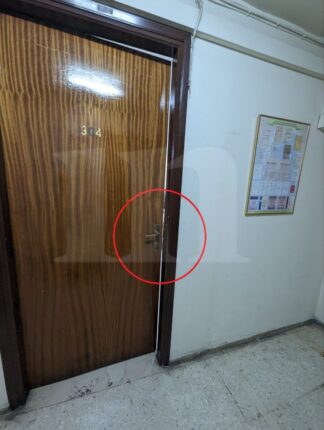Letter from Kostas Vaxevanis to Organizations for Human Rights and Freedom of the Press
The Greek Minister of Justice Nikos Paraskevopoulos announced a few days ago that he is preparing to change laws concerning the persecution of journalists. In recent interviews, he even gave himself the freedom to title his legislative initiative “legislation for Freedom of the Press.” Based on his description though, it is rather clear that the Minister is willing to play with words but not to change the outdated Greek legislation criminalizing journalism and punishing anyone who has the courage to tell the truth.
Aside from the fact that the Minister of Justice announced that he is about to change a part of the relevant legislation concerning lawsuits against the Press that Greece’s courts have not enforced for years because they consider that it is unconstitutional, the proposed new legislation makes matters worse with regard to the criminalization of journalism. The Minister intends to introduce a clause which will allow a case against a journalist to be dropped if the journalist “repents,” or recalls what he wrote. However, the problem in Greece is not that journalists are unfair to those about whom they write and therefore must “repent” for what they have written, but that journalists have effectively been silenced, choosing not to write at all. And when they do write, they are punished through legal procedures which exhaust them and hold them hostage.
In Greece, if anyone sues a journalist about something he wrote, even if it is true, the legal framework provides for his flagrante arrest, after which he is led, in handcuffs, to an immediate trial. In the new legislation, the Minister does not change this absurd and degrading process. However, that is not the point. Malicious slander is a criminal offense in Greece. On its own, this is probably a legal choice and part of a legal culture, but let’s look at what is really happening. In Greece, a deeply rooted system of corruption permeates social and political life. A triangle of corruption rules the country: Oligarchs who define public discourse and break the law, politicians who perform the cover up, and the press which is owned by the oligarchs and therefore does not perform its role. The result of this triangle is that journalism has been transformed into a mere garnish, without carrying out, in most cases, its informational and watchdog role in favor of the public interest. This is not merely a personal observation, but an open secret in Greece. Attacking this structure of corruption and the manipulative role played by the Press was one of the highlights of Prime Minister Alexis Tsipras election campaign. With these commitments, he was elected Prime Minister.
Those journalists who have decided to remain independent are crushed by the existing legal framework. They are constantly being prosecuted, detained, and are exhausted economically even when they end up being acquitted. The public figures (usually politicians and oligarchs) in question refuse to respond to what the reporter writes, even though they are obliged to as a result of their public role. Instead, they proceed with lawsuits and distort reality , portraying journalists as suspected criminals and slanderers instead of portraying themselves as public figures who are themselves watched over by the press. “I sued my slanderer” is the common response of these figures regarding articles written about them.
Prosecutors, on their part, never reject these lawsuits, even when they can see what the truth is, because in Greece, no one chooses to confront the powerful. As a result, these lawsuits are heard in court. After years of postponements, the accused journalist, might be acquitted, but only after having been harassed and after having paid thousands of euros in legal fees. In essence, the oligarchs use their weapon of choice, money, against journalists. Furthermore, the case against the journalist who published the truth does not necessarily end after his acquittal. In Greece, the corrupt justice system rarely convicts powerful individuals. The country’s Supreme Court is involved in such cases of corruption. A recent case involving businessman and former banker Andreas Vgenopoulos is characteristic of this situation. Cypriot authorities accused Vgenopoulos of damaging the economy of Cyprus through loans he issued to his friends and business interests. In Greece, prosecutors were prepared to press charges against Vgenopoulos after an investigation, when a senior prosecutor intervened and stripped the case file from the prosecutors who had performed the investigation. In such an environment, the acquittal of the journalist who tells the truth cannot be taken for granted.
This situation, which drags on for years and which is created by the criminalization of journalism, has resulted in journalists being sued not just for their investigations or reports, but also for the articles they write. An opinion in many cases has been treated as a criminal offense. Numerous journalists who were convicted in Greece and appealed to the European courts, ended up being acquitted. By then though, they were already exhausted and perhaps even destroyed, financially and professionally. The implementation of Greek law, and particularly the judgments issued as a result of this corrupt situation that has been established, contravenes Article 10 of the European Convention on Human Rights. International organizations like yours have denounced the criminalization of journalism in Greece and have requested the abolition of laws treating malicious slander as a criminal offense, having even sent the Minister Nikos Paraskevopoulos proposals and calling for the decriminalization of journalism. However, the Minister decided that, instead of changing this medieval regime, he could simply rename it and allow the corruption of vested interests to continue. Indeed, he has declared that his proposed measure which would allow journalists to “repent” in order to avoid prosecution, is “progressive.” This proposal allows the journalist to escape being prosecuted, but only if he submits to powerful interests.
What I am writing to you should what Greece’s journalistic organizations should be demanding. Unfortunately, the prevalent mentalities in Greece’s journalistic landscape is part of the problem. Only the intervention of organizations fighting for human rights and the freedom of the press can change the situation in Greece, since those who legislate are either corrupt or simply resigned to an ugly reality which has lasted for years and which has become the status quo.
Kostas Vaxevanis




 Tα σχόλια στο site έχουν απενεργοποιηθεί. Μπορείτε να σχολιάζετε μέσα από την επίσημη σελίδα στο Facebook
Σχόλια
Tα σχόλια στο site έχουν απενεργοποιηθεί. Μπορείτε να σχολιάζετε μέσα από την επίσημη σελίδα στο Facebook
Σχόλια






